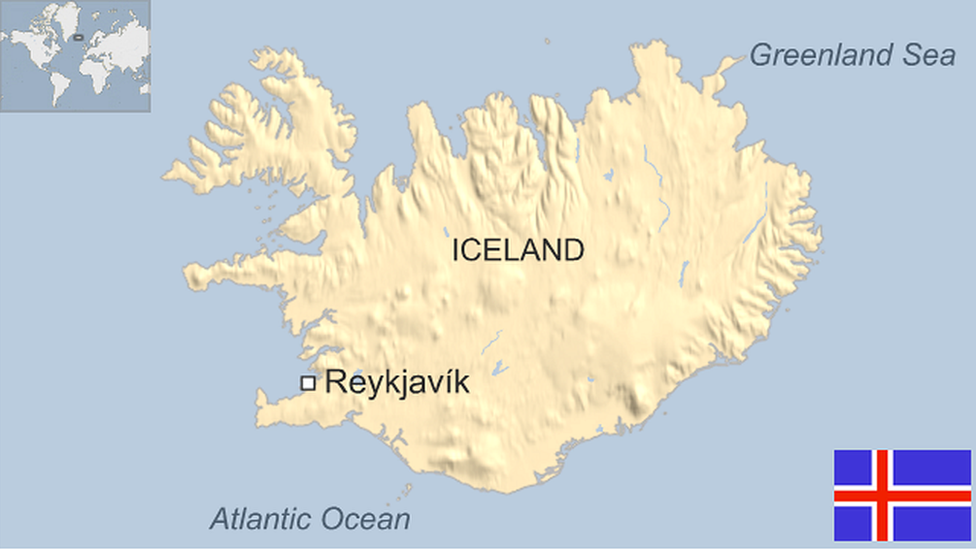A murder shocks Iceland and dents women's sense of safety
- Published
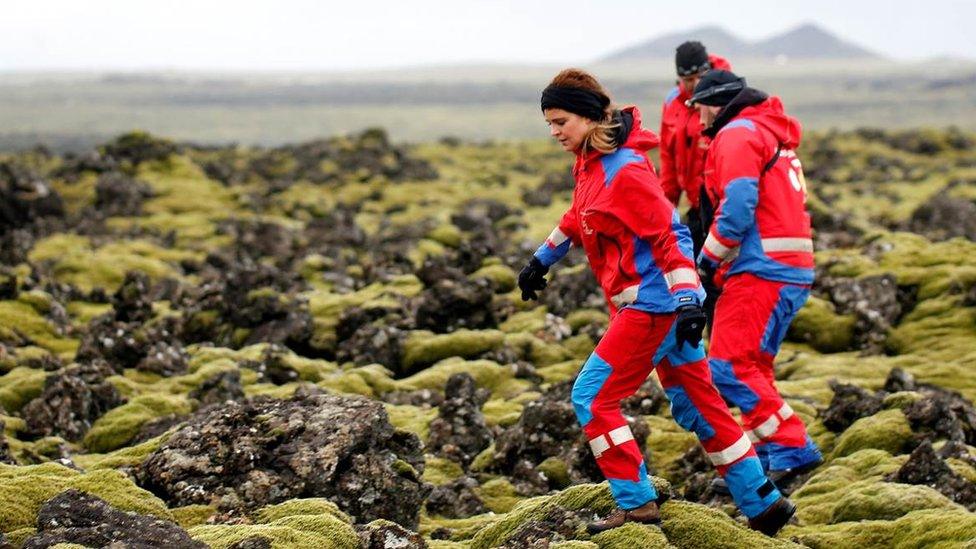
Seven hundred people took part in the search for Birna when she was reported missing
Iceland is united in grief. The body of a young woman, Birna Brjansdottir, was found washed up on a desolate, cold beach last weekend.
Birna, 20, had been reported missing over a week before.
Such murder cases are rare in a country with one of the world's lowest crime rates and a population of 330,000 people.
No-one I have spoken to has been untouched by the events that unfolded from such an everyday event as a young woman walking home from a night out partying, along a well-lit street.
For some, the case has sinister echoes of a dark plot from a Nordic noir TV drama.
I and almost every one of my female friends have walked up that very same street from that very same bar, at that hour of night, and we have always felt safe.
Most of my friends even told me that at some point they had caught a lift from strangers for short distances. Some use an underground Uber-like service called Skutlarar- a Facebook group where people offer or ask for lifts from strangers driving around town, for a lower price than official taxis.
A close friend once told me she had got a lift from a tourist last summer, from a party near the harbour at Grandi. "I was so tired, and I couldn't find a taxi," she explained. That might sound crazy but that is how safe women in Reykjavik usually feel.
More stories from Iceland:
Of course the city centre of Reykjavik obviously isn't entirely safe.
Locals drink heavily on weekend nights, partying goes on all night and it is usually a vociferous, crowded affair. And there are occasional reports of attacks and rapes.
But this was different. A young woman walking up the main street eating a kebab who then disappeared off the face of the earth.
The story of Birna, an average young Icelandic woman, who walked up the city's main shopping street, Laugavegur, after a beer too many touches everyone because we can all relate to it.
What happened to Birna?
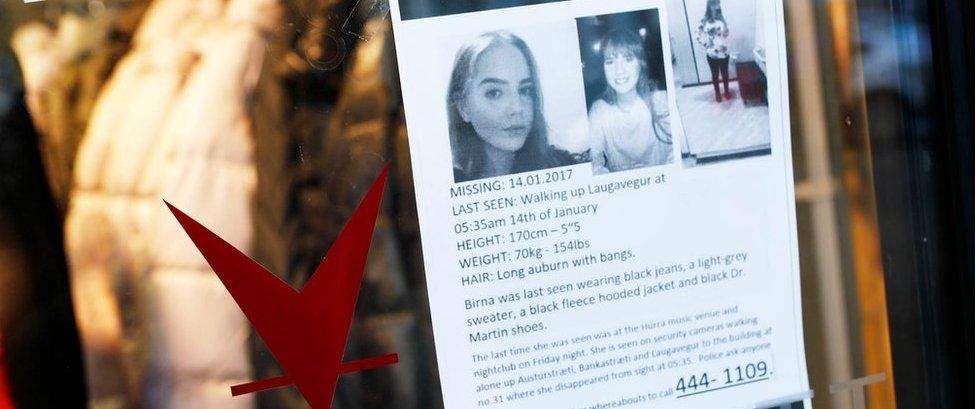
The 20-year-old goes out on the Friday night, to a music venue.
At around 05:00 the next morning, on 14 January, she leaves the club on her own. She is separated from her friends, and never seen again.
Hours later she is reported missing.
Birna's photograph immediately starts circulating on Icelandic social media on Saturday.
Where is she, her mother pleads. Birna is conscientious, she's always online, she always calls. She's not involved with drugs. Birna's face gazes at us from her photo: a pretty, smiling, auburn-haired girl next door.
It is now Monday, and Reykjavik Metropolitan Police host a press conference.
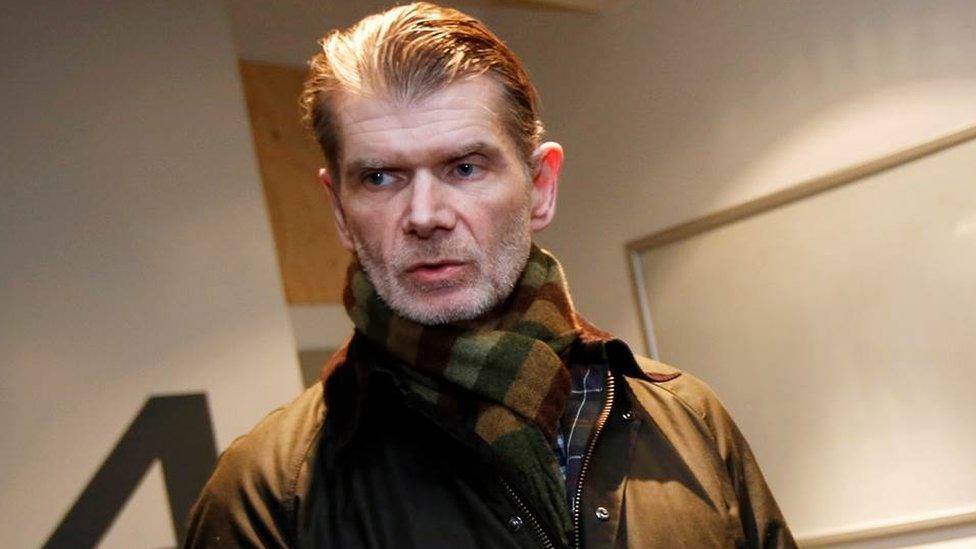
Grimur Grimsson leads the investigation into the murder
This is unusual in Iceland. Usually, local police are a surly bunch and rarely give much information to the media.
This time they are open, honest, compassionate, clear and concise. Heading the investigation is Grimur Grimsson, a policeman who reminds us of fictional crime-fighter Detective Erlendur, a gloomy figure from the novels of Icelandic writer Arnaldur Indridason.
Over the course of a week police begin piecing together the puzzle that is Birna's disappearance.
From the security camera footage of her walking unsteadily up Laugavegur, to where she goes missing at number 31, where a red Kia Rio car pulled up.
Her mobile phone is traced all the way to Hafnarfjordur, a picturesque little town next to Reykjavik.
Events turn more and more sinister.
Her Doc Marten shoes are found by Hafnarfjordur harbour, and the rental car is traced to a couple of crew members of a Greenlandic trawler, the Polar Nanoq.
Armed special forces board a helicopter, fly to the trawler as it heads back to Greenland, take control of the ship, return it to Iceland and arrest two men on suspicion of murder. They deny involvement.
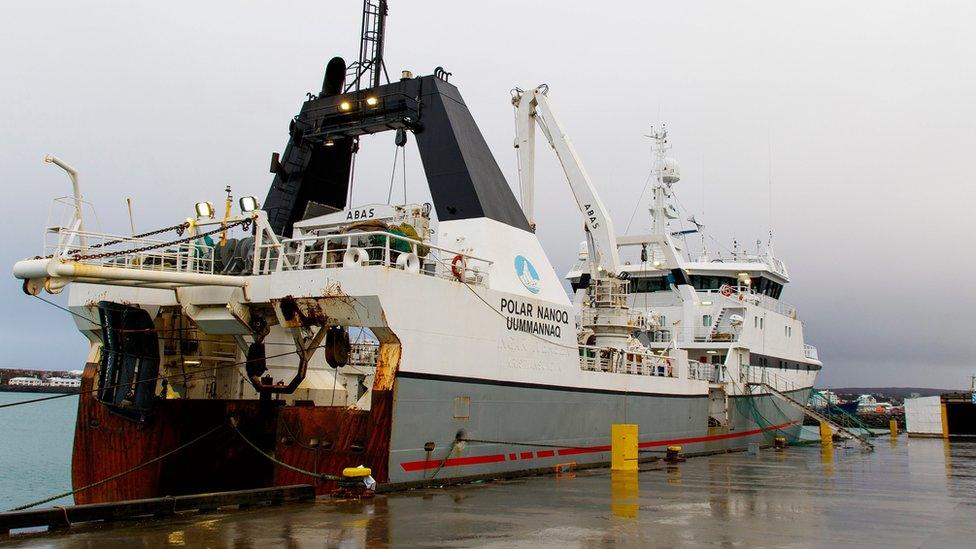
The two suspects were detained after a special forces operation at sea
The following day over 700 members and volunteers from Iceland's SAR search and rescue team take part in the biggest such operation in the island's history.
Birna's blood is found inside the car, and finally the tragic news that people were hoping not to hear.
On Sunday 22 January, her body was found near a lighthouse on the Reykjanes peninsula, over 40km (26 miles) from where she disappeared. The post mortem examination was clear - she had been murdered.
Two islands in mourning
We still don't know what happened to Birna Brjansdottir in those fateful hours of Saturday morning.
But Icelanders responded by putting a candle in their windows.
Social media was flooded with messages for Birna. People broke down in tears. Flowers were placed on the spot where she disappeared.
Our neighbours in Greenland were also shocked. Crowds gathered with candles in six different towns and also placed candles in their windows.
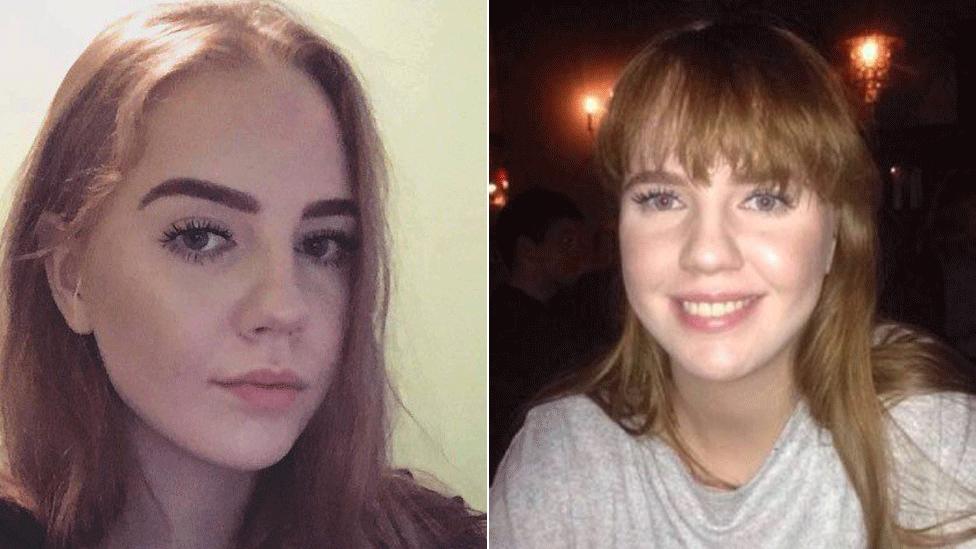
Icelandic women have reacted defiantly to news of Birna's murder
Two nations, united in grief over a young woman who could have been anyone's sister, daughter or girlfriend. When you live in such a small society, the victim doesn't feel like a stranger, but part of your family.
Hundreds of Icelanders will take part in a candlelit march for Birna on Saturday, on the street she disappeared.
Icelandic women don't want this to make them scared of going out at night, nor will they pay attention to warnings to avoid getting drunk or walking home alone, as if such crimes are somehow our fault.
But I fear that Birna's murder has changed things. It has changed the way I feel heading back from a pub downtown, and my 16-year-old daughter tells me she won't be walking there alone at night in the future.
Anna Margret Bjornsson has covered the murder of Birna Brjansdottir for Iceland Monitor (mbl.is), external
Read more local coverage on the case here:
- Published25 October 2024
